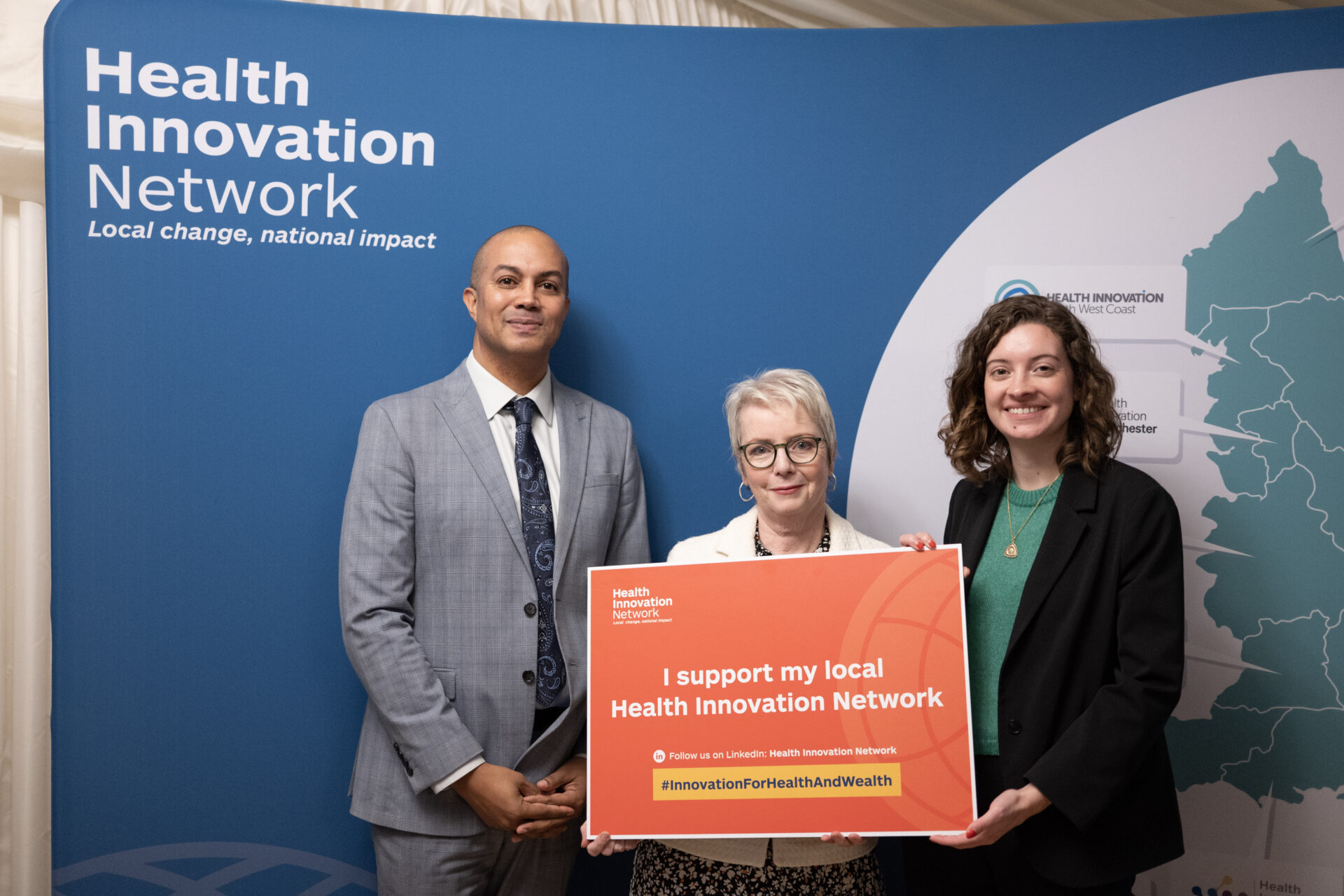In recent years, a spotlight has been shone on the health gender gap. Although women in the UK on average live longer than men, women spend a significantly greater proportion of their lives in ill health and disability when compared with men*.
Women are routinely underrepresented in clinical trials, and medical research proposed by women for women receives less funding that proposals by men, for men.
In August 2022, the government published its first ever Women’s Health Strategy and earlier this year, Victoria Aitkens, Health Secretary, shared the latest women’s health priorities for England.
Innovation has a huge role to play in ensuring women have access to the best quality care.
Last year, a number of health innovation networks teamed up to deliver the Accelerating FemTech programme, which supported innovators to boost the development of technology solutions to address current challenges in women’s health. These included female-specific areas, such as maternal health, fertility, gynecological cancers and menopause, as well as conditions that affect women disproportionally or differently, including osteoporosis or cardiovascular disease.
We spoke to some of the innovators who took part 10-week support programme to find out why they think innovation has the power to improve women’s health.
“Recognising barriers and fostering change”
Louise Ben-Nathan is founder of LBN Innovations, and her product is a new medical device to replace the speculum for cervical screening.
Louise said: “Innovation in women’s health hinges on addressing underlying issues, yet a historical reluctance to acknowledge these challenges has impeded progress.
“Consider cervical screening, where pain is often dismissed, perpetuating the outdated speculum design for over a century. This, among other screening barriers, has led to nearly one in three women and people with a cervix in the UK currently declining their screening invitations.
“However, initiatives like The Accelerating FemTech program are recognising these barriers and fostering change. I had the privilege of participating and collaborating with fellow innovators committed to driving advancements in women’s health. While navigating the complexities of bringing a medical device to market is daunting, early clinical engagement, facilitated by the programme, has propelled my product development efforts forward.
“We must continue striving for innovation that revolutionises women’s health and has impact on a global scale.”
“Embracing innovation to transform health outcomes”
Justyna Strzeszynska is the CEO and founder of Joii, which wants to change period care by delivering a first-of-its-kind menstrual management tool and high-performance period products. Justyna said: “Innovation has the power to transform women’s health by developing tailored solutions that address the unique experiences women face throughout their lives.
“Women encounter significant challenges related to menstrual, reproductive, and menopausal health, which can impact their overall quality of life, including work and intimate relationships. By embracing innovation, we can transform women’s health outcomes.
“Technological advancements offer opportunities to educate young girls, promote body positivity, and raise awareness about menstrual health. In fertility, digital health innovations empower women to make informed decisions and actively participate in their reproductive journey with their healthcare providers. During menopause, digital platforms provide support and symptom management, allowing women to maintain fulfilling lives.
“Finally, innovations in mental health and self-care are essential for promoting emotional and psychological well-being across all stages of a woman’s life.
“The Accelerating Femtech project was hugely beneficial to Joii as it equipped us with essential knowledge to navigate the healthcare landscape in the UK.”
“Empowering women to manage their health”
Nitya Dintakurti is co-founder and CEO of RU Medical, which aims to transform menopausal care through innovative technologies.
Nitya said: “Through innovative solutions, tailored specifically to address the unique needs and challenges faced by women, we can revolutionise the diagnosis, treatment, and prevention of various health conditions women are suffering from in silence. Whether through wearable devices, digital health platforms, or AI-driven diagnostics, innovation offers the promise of personalized care and enhanced outcomes across a spectrum of women’s health concerns. By leveraging innovation, we can empower women to manage their health actively, advocate for their needs, and ultimately achieve better health outcomes and well-being.
“Accelerating FemTech has been a fantastic platform to meet fellow innovators who are building transformational technologies in various fields of women’s health and collaborate with members of the NHS and other healthcare system infrastructure.”
Accelerating FemTech was delivered by the Health Innovation Network and other partners, including DigitalHealth.London, Health Innovation South West, Health Innovation West of England, Health Innovation Kent Surrey Sussex, Health Innovation East Midlands, Health Innovation Yorkshire and Humber, Health Innovation Manchester and Health Innovation North East and North Cumbria. DigitalHealth.London is a collaboration between two of London’s health innovation networks, the Health Innovation Network and UCLPartners.

The Health Innovation Network is delighted to announce the launch of Innovation Insights, a brand-new webinar series designed to highlight the latest in health innovation, offering attendees valuable insights into the adoption and spread of innovation within the health and care landscape. Each interactive webinar will feature: Expert presentations: Delivered by thought leaders across [...]

The Health Innovation Network, at an event sponsored by Sarah Coombes MP, brought together parliamentarians including Health Minister Karin Smyth MP and Chair of the Science, Innovation and Technology Committee, Chi Onwurah MP to meet with six innovators supported by health innovation networks across the country and their NHS partners. At the Meet the Innovators: [...]

The need for fast-paced innovation in healthcare is widely acknowledged. And ensuring that healthcare innovation is shaped by the people it serves remains a pressing priority – one made all the more evident by the growing emphasis on health equity in the 10 Year Health Plan. Patient voices are often cited as central to healthcare [...]









